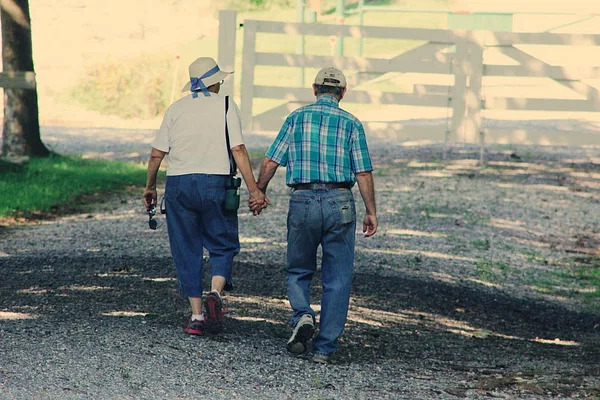
Elder Abuse
Elder abuse is a growing concern in the United States, and nursing homes are unfortunately one of the most common places for it to occur. Elder abuse can take many forms, including physical, emotional, and financial abuse. The effects of elder abuse can be devastating, not only for the victims but also for their families and loved ones. This blog post will explore the different types of elder abuse, the warning signs of abuse, the human cost of elder abuse, and the legal consequences of elder abuse in nursing homes.
What is Elder Abuse
Elder abuse is defined as any intentional act that causes harm or creates a serious risk of harm to an older person, aged 60 or older. There are many different types of elder abuse, including physical abuse, emotional abuse, sexual abuse, and financial abuse.
Types of Elder Abuse
- Physical abuse: This includes any physical force that results in injury or pain, such as hitting, pushing, or shaking.
- Emotional abuse: This includes any verbal or nonverbal behavior that causes emotional pain or distress, such as yelling, threatening, or isolating the victim.
- Sexual abuse: This includes any unwanted sexual contact, such as touching or fondling, or forcing the victim to engage in sexual acts.
- Financial abuse: This includes any misuse or theft of an elder’s financial resources, such as stealing money, forging checks, or using credit cards without permission.
Warning Signs of Elder Abuse
It is important to recognize the warning signs of elder abuse so that it can be addressed and stopped as soon as possible. Some common warning signs include:
- Unexplained bruises or injuries
- Withdrawal from social activities
- Fear or anxiety around certain caregivers or staff members
- Sudden changes in financial situation or missing belongings
The Human Cost of Elder Abuse
Elder abuse can take a heavy toll on victims, both physically and emotionally, as well as financially. It is important to understand the human cost of elder abuse so that we can work towards preventing it from happening in the first place.
Physical and Emotional Toll
Elder abuse can cause a wide range of physical and emotional problems for victims, including:
- Depression and anxiety
- Loss of self-esteem
- Chronic pain
- Malnutrition and dehydration
- Increased risk of falls and injuries
Financial Burden
Elder abuse can also have a significant financial impact on victims, as well as their families and loved ones. This can include:
- Loss of savings or assets
- Medical bills and expenses
- Legal fees and costs
- Cost of moving to a new Nursing Home
Confronting Elder Abuse in Nursing Homes
It is crucial that we take steps to prevent elder abuse from occurring in nursing homes. There are several preventative measures that can be taken, as well as steps that can be taken to report suspected abuse.
Preventative Measures
- Background checks and training for nursing home staff members
- Encouraging open communication between staff and residents/families
- Regular check-ins with residents to ensure their well-being
- Creating a culture of respect and dignity for residents
Elder abuse in nursing homes is a serious issue that requires our attention and action. By understanding the different types of elder abuse, recognizing the warning signs, and taking preventative measures, we can work towards preventing it from occurring in the first place. If elder abuse is suspected, it is important to report it immediately and seek legal assistance to protect the victim’s rights. By confronting elder abuse head-on, we can ensure that our elderly loved ones receive the care and respect they deserve.
Reporting Elder Abuse
If elder abuse is suspected, it is important to report it immediately. Some steps that can be taken include:
- Contacting local law enforcement or adult protective services
- Reporting the abuse to the nursing home administration
- Seeking legal assistance to protect the victim’s rights
Legal Consequences of Elder Abuse
Elder abuse is a serious crime, and those responsible can face both criminal and civil consequences.
Criminal Charges
Criminal charges can be brought against those responsible for elder abuse, which can result in fines, imprisonment, or both.
Civil Suits
Victims of elder abuse may also choose to pursue civil suits against those responsible, which can result in monetary damages and compensation for the victim’s suffering.
Why You Need a Nursing Home Lawyer if You Suspect Elder Abuse
If you suspect that your loved one has been a victim of elder abuse in a nursing home, it is important to seek the help of a nursing home lawyer. These legal professionals specialize in cases of elder abuse and have the expertise necessary to help you navigate the legal process and protect your loved one’s rights.
A nursing home lawyer can help you gather evidence, file a lawsuit, and pursue compensation for your loved one’s suffering. They can also help you ensure that the nursing home is held accountable for their actions and take steps to prevent future abuse from occurring.
It is important to act quickly if you suspect elder abuse in a nursing home, as evidence can quickly disappear and the statute of limitations for filing a lawsuit varies by state. By seeking the help of a nursing home lawyer, you can ensure that your loved one receives the justice they deserve and hold the nursing home responsible for their actions.
If you suspect elder abuse in a nursing home, do not hesitate to contact a nursing home lawyer today. They can provide you with the guidance and support you need to protect your loved one’s rights and ensure that justice is served.
Elder abuse in nursing homes can have a devastating impact on victims and their families. It is crucial that we take steps to prevent it from occurring and hold those responsible accountable for their actions. By recognizing the warning signs, taking preventative measures, and reporting suspected abuse, we can work towards creating a culture of respect and dignity for our elderly loved ones. Let us all make an effort to confront the dark side of nursing home care and ensure that our elderly population receives the care they deserve.






